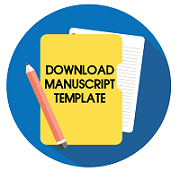Analisis Hubungan Kemandirian dengan Prestasi Belajar Peserta Didik Kelas VII 1 dan VII 2 SMP Nommensen Kota Jambi
DOI:
https://doi.org/10.21831/jpms.v7i2.25239Keywords:
analisis, hubungan, kemanidiran, prestasi belajarAbstract
Penelitian ini bertujuan untuk menganalisis hubungan kemandirian dengan prestasi belajar peserta didik kelas VII 1 dan VII 2 SMP Nommensen Kota Jambi. Pendekatan yang digunakan dalam penelitian ini adalah pendekatan kuantitatif. Subjek penelitian ini adalah peserta didik kelas VII 1 dan VII 2, dengan jumlah total 40 responden. Pada penelitian ini untuk mendapatkan data penelitian ini yaitu dengan menyebarkan angket yang berisi 25 pernyataan. Untuk melihat prestasi dari peserta didik dapat dilihat dari nilai tes yang dilakukan. Hasilnya dianalisis hubungan kemandirian dengan prestasi peserta didik. Kualitas belajar peserta didik yang rendah dapat mempengaruhi prestasi belajar peserta didik. Prestasi belajar yang tinggi menjadi salah satu indikator keberhasilan proses belajar. Kemauan untuk belajar secara mandiri merupakan penentu faktor keberhasilan belajar bagi seorang peserta didik. Namun kenyataan tidak semua peserta didik yang mendapat prestasi belajar yang tinggi dan masih banyak peserta didik yang mendapat hasil belajar yang rendah. Rendahnya prestasi belajar peserta didik tersebut diantaranya dipengaruhi oleh kemandirian belajar di sekolah.References
Bakar, R. (2018). The influence of professional teachers on Padang vocational school students' achievement. Kasetsart Journal of Social Sciences, 39(1), 67-72.
Blanchard, J., Blais, S., Chetaille, P., Bisson, M., Counil, F. P., Huard-Girard, T., & Dallaire, F. (2018). New reference values for cardiopulmonary exercise testing in children. Medicine and Science in Sports and Exercise, 50(6), 1125-1132.
Lang, C., & Liu, C. (2019). The entrepreneurial motivations, cognitive factors, and barriers to become a fashion entrepreneur: A direction to curriculum development for fashion entrepreneurship education. International Journal of Fashion Design, Technology and Education, 12(2), 235-246.
Lei, H., Cui, Y., & Zhou, W. (2018). Relationships between student engagement and academic achievement: A meta-analysis. Social Behavior and Personality: An International Journal, 46(3), 517-528.
Patall, E. A., Steingut, R. R., Vasquez, A. C., Trimble, S. S., Pituch, K. A., & Freeman, J. L. (2018). Daily autonomy supporting or thwarting and students' motivation and engagement in the high school science classroom. Journal of Educational Psychology, 110(2), 269-275.
Putri, R. S., Purwanto, A., Pramono, R., Asbari, M., Wijayanti, L. M., & Hyun, C. C. (2020). Impact of the COVID-19 pandemic on online home learning: An explorative study of primary schools in Indonesia. International Journal of Advanced Science and Technology, 29(5), 4809-4818.
Rayner, E. (2020). The independent mind in British psychoanalysis. Routledge.
Republik Indonesia. (2003). Undang-undang nomor 20 tahun 2003 tentang sistem pendidikan nasional.
Republik Indonesia. (2013). Peraturan pemerintah Nomor 32 tahun 2013 tentang standar nasional pendidikan.
Rusman. (2014). Model-model pembelajaran mengembangkan profesionalisme guru. Rajawali Pers.
Sugiyono. (2015). Metode penelitian pendidikan. Alfabeta.
Taber, K. S. (2018). The use of Cronbach's alpha when developing and reporting research instruments in science education. Research in Science Education, 48(6), 1273-1296.
Tanujaya, B., Mumu, J., & Margono, G. (2017). The relationship between higher order thinking skills and academic performance of student in mathematics instruction. International Education Studies, 10(11), 78-85.
Downloads
Published
How to Cite
Issue
Section
License
Jurnal Pendidikan Matematika dan Sains allows readers to read, download, copy, distribute, print, search, or link to its articles' full texts and allows readers to use them for any other lawful purpose. The journal allows the author(s) to hold the copyright without restrictions. Finally, the journal allows the author(s) to retain publishing rights without restrictions
- Authors are allowed to archive their submitted article in an open access repository
- Authors are allowed to archive the final published article in an open access repository with an acknowledgment of its initial publication in this journal

This work is licensed under a Creative Commons Attribution-ShareAlike 4.0 Generic License.





